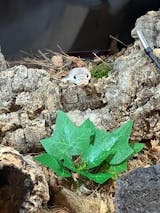The Belgian Malinois is a breed renowned for its intelligence, agility, and loyalty. As a new pet owner, understanding the nutritional needs of your Belgian Malinois throughout its life stages is imperative for promoting optimal health and well-being. This comprehensive guide will delve into the intricacies of feeding your Belgian Malinois, offering a meticulously crafted feeding chart by age to assist you in making informed dietary decisions.
Understanding the Nutritional Needs of a Belgian Malinois
The Belgian Malinois is a highly active breed, necessitating a diet that provides adequate energy and nutrients to support their dynamic lifestyle. Their diet should encompass a balance of proteins, fats, carbohydrates, vitamins, and minerals. The requirements for each of these components vary with age, size, and activity level, making it crucial to tailor their feeding regimen accordingly.
The Role of Proteins, Fats, and Carbohydrates
Protein is the cornerstone of a Belgian Malinois's diet, essential for muscle development and repair. High-quality animal proteins such as chicken, beef, and fish should be prioritized. Protein not only aids in muscle repair but also supports the growth of a healthy immune system. It is important to ensure that the protein sources are digestible and suitable for your dog's specific needs.
Fats serve as a concentrated energy source and aid in maintaining a healthy coat and skin. Omega-3 and Omega-6 fatty acids are particularly beneficial for their anti-inflammatory properties and skin health. These fats also play a significant role in brain development and cognitive function, which is vital for a breed known for its intelligence.
Carbohydrates provide the necessary fuel for daily activities and should be sourced from whole grains and vegetables. They are essential for sustained energy levels throughout the day. Complex carbohydrates, such as those found in sweet potatoes and brown rice, are preferable as they are digested more slowly and provide a steady release of energy.
Vitamins and Minerals
Vitamins and minerals play a pivotal role in maintaining a robust immune system and promoting overall health. Calcium and phosphorus are vital for bone development, ensuring your Belgian Malinois maintains strong skeletal structure. Magnesium, potassium, and zinc are also essential minerals that support various bodily functions and enhance nutrient absorption.
Vitamins such as A, D, E, and B-complex support various physiological functions, including vision, bone health, and energy metabolism. Ensuring a balanced intake of these nutrients is key to preventing deficiencies and fostering long-term health. Antioxidants found in certain vitamins can also help combat oxidative stress and support cellular health.
Tailoring Nutrition to Activity Level
A Belgian Malinois's activity level can greatly influence their nutritional needs. Active dogs require a higher caloric intake to fuel their energetic lifestyle. For working dogs or those involved in sports, additional protein and fat may be necessary to support their physical demands. Conversely, less active dogs will need fewer calories to prevent weight gain.
Monitoring your dog's activity level and adjusting their diet accordingly is crucial for maintaining optimal health. It's important to provide a diet that not only meets their energy requirements but also supports their overall well-being. Regularly assessing your dog's body condition and consulting with a veterinarian can help ensure their dietary needs are being met.
Belgian Malinois Feeding Chart by Age
This feeding chart serves as a guideline to assist you in determining the appropriate amount and type of food for your Belgian Malinois at different life stages. It is important to note that individual needs may vary, and consultation with a veterinarian is advisable for personalized recommendations.
Puppy (0-6 Months)
During the puppy stage, Belgian Malinois experience rapid growth and require a diet rich in calories and nutrients to support development.
- 0-3 Months: Feed your puppy four times a day with a high-quality puppy food formulated for large breeds. Ensure the food contains DHA for brain development and a protein content of at least 25-30%. Frequent meals are crucial at this stage to maintain consistent energy levels and support growth spurts.
- 3-6 Months: Gradually reduce feeding to three times a day. Continue with a large-breed puppy formula, maintaining a balance of proteins and healthy fats. As your puppy's digestive system matures, they can handle fewer meals with larger portions. This transition period is also a great time to introduce new textures and flavors to their diet.
- Nutritional Focus: During these initial months, the focus should be on building strong bones and muscles. Calcium and phosphorus ratios are critical to ensure proper skeletal development. Additionally, incorporating a small amount of high-quality fat supports brain development and energy needs.
Adolescent (6-18 Months)
As your Belgian Malinois transitions into adolescence, their growth rate will begin to stabilize, but their energy levels remain high.
- 6-12 Months: Feed twice daily, transitioning to a high-quality adult dog food. Ensure the protein content remains substantial to support muscle development. This stage is pivotal for establishing lifelong dietary habits, so introducing a variety of nutrients is beneficial.
- 12-18 Months: Continue feeding twice daily, monitoring weight and adjusting portions to maintain an optimal body condition. During this period, you may notice your dog filling out and losing some of their puppy leanness. It's important to adjust feeding to prevent excess weight gain.
- Nutritional Focus: The adolescent stage is all about supporting sustained energy and muscle development. Ensuring a balanced intake of proteins, fats, and carbohydrates is crucial. Introducing joint supplements can also be beneficial as they begin to engage in more vigorous activities.
Adult (1.5-7 Years)
Adult Belgian Malinois require a maintenance diet that supports their active lifestyle while preventing obesity.
- 1.5-3 Years: Maintain a feeding schedule of twice daily with a balanced adult formula. Monitor weight and adjust portions based on activity level. This stage is often the most stable in terms of dietary needs, but regular check-ins with a vet can help fine-tune their diet.
- 3-7 Years: Continue with an adult diet, incorporating Omega-3 fatty acids to support joint health and mobility. As they enter mid-life, keeping an eye on their weight and joint health becomes increasingly important.
- Nutritional Focus: Maintaining a healthy weight and supporting joint health are key during the adult years. Incorporating antioxidants and joint supplements can help prevent age-related health issues. Ensuring they receive adequate hydration is also vital for overall health.
Senior (7+ Years)
As your Belgian Malinois enters their senior years, their metabolism may slow, necessitating dietary adjustments to prevent weight gain and promote health.
- 7+ Years: Transition to a senior dog food formula that is lower in calories but rich in fiber and essential nutrients. Continue feeding twice daily, emphasizing joint support supplements if necessary. Senior dogs may also benefit from additional protein to prevent muscle loss and enhance vitality.
- Nutritional Focus: The focus during the senior years shifts to promoting longevity and quality of life. Fiber becomes important to aid digestion and prevent constipation. Regular veterinary check-ups can help adjust their diet to meet changing health needs.
- Special Considerations: As dogs age, they may experience a decrease in appetite or changes in taste preference. Offering a variety of flavors and textures can help maintain their interest in food. Monitoring for any signs of dental issues is also important, as these can affect their ability to eat comfortably.
Special Considerations for Belgian Malinois
Weight Management
Maintaining an optimal weight is critical for preventing health issues such as joint problems and heart disease. Regular exercise, portion control, and monitoring body condition are essential components of a weight management strategy. Engaging in activities like agility training and regular walks can help keep your dog fit and healthy.
Food Allergies and Sensitivities
Belgian Malinois, like many breeds, may develop food allergies or sensitivities. Common allergens include grains, chicken, and beef. If you notice signs of allergies such as skin irritation or digestive issues, consult your veterinarian to devise an elimination diet plan. Identifying and avoiding allergens can significantly improve your dog's quality of life.
Hydration and Supplementation
Adequate hydration is vital, particularly for active Belgian Malinois. Ensure clean, fresh water is always available. Dehydration can lead to serious health issues, so monitoring your dog's water intake is crucial. Supplements such as glucosamine, chondroitin, and fish oil can be beneficial for joint health and overall well-being. These supplements support joint mobility and reduce inflammation, which is particularly important for an active breed.
Dental Health
Dental health is often overlooked, but it's an integral part of overall well-being. Regular brushing and providing dental chews can help reduce plaque buildup and prevent periodontal disease. A healthy mouth can prevent pain and discomfort, ensuring your Belgian Malinois remains active and happy.
Behavioral and Training Considerations
The Belgian Malinois is an intelligent breed that thrives on mental stimulation. Incorporating training sessions and interactive feeding methods, such as puzzle feeders, can provide both physical and mental exercise. This not only enhances their quality of life but can also prevent behavioral issues stemming from boredom.
Conclusion
Feeding your Belgian Malinois a balanced diet tailored to their age and lifestyle is essential for promoting health and longevity. By adhering to the guidelines outlined in this feeding chart and consulting with your veterinarian, you can ensure that your Belgian Malinois receives the nutrition they need to thrive. As you embark on this journey, remember that a well-fed pet is a happy and healthy companion. Regularly reassessing their diet and making necessary adjustments will help support their well-being throughout their life. With proper nutrition, your Belgian Malinois can enjoy an active, fulfilling life alongside you.











